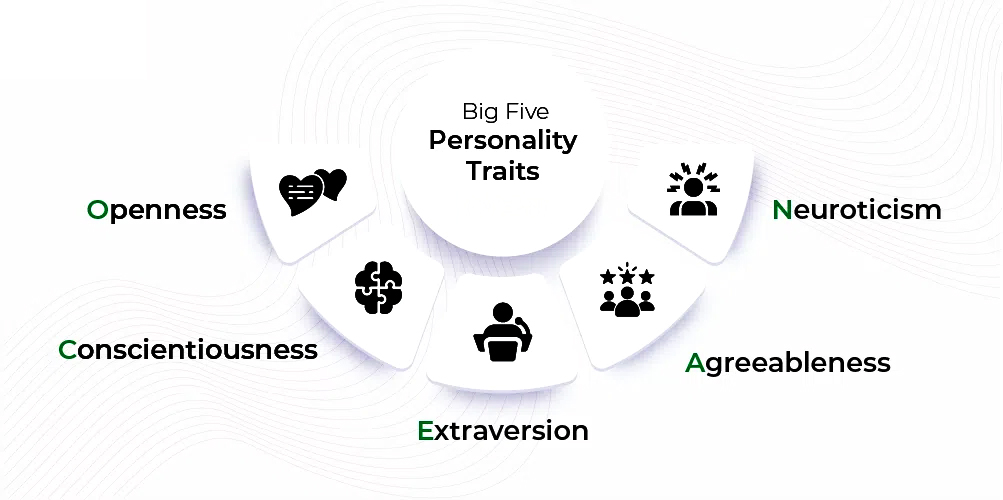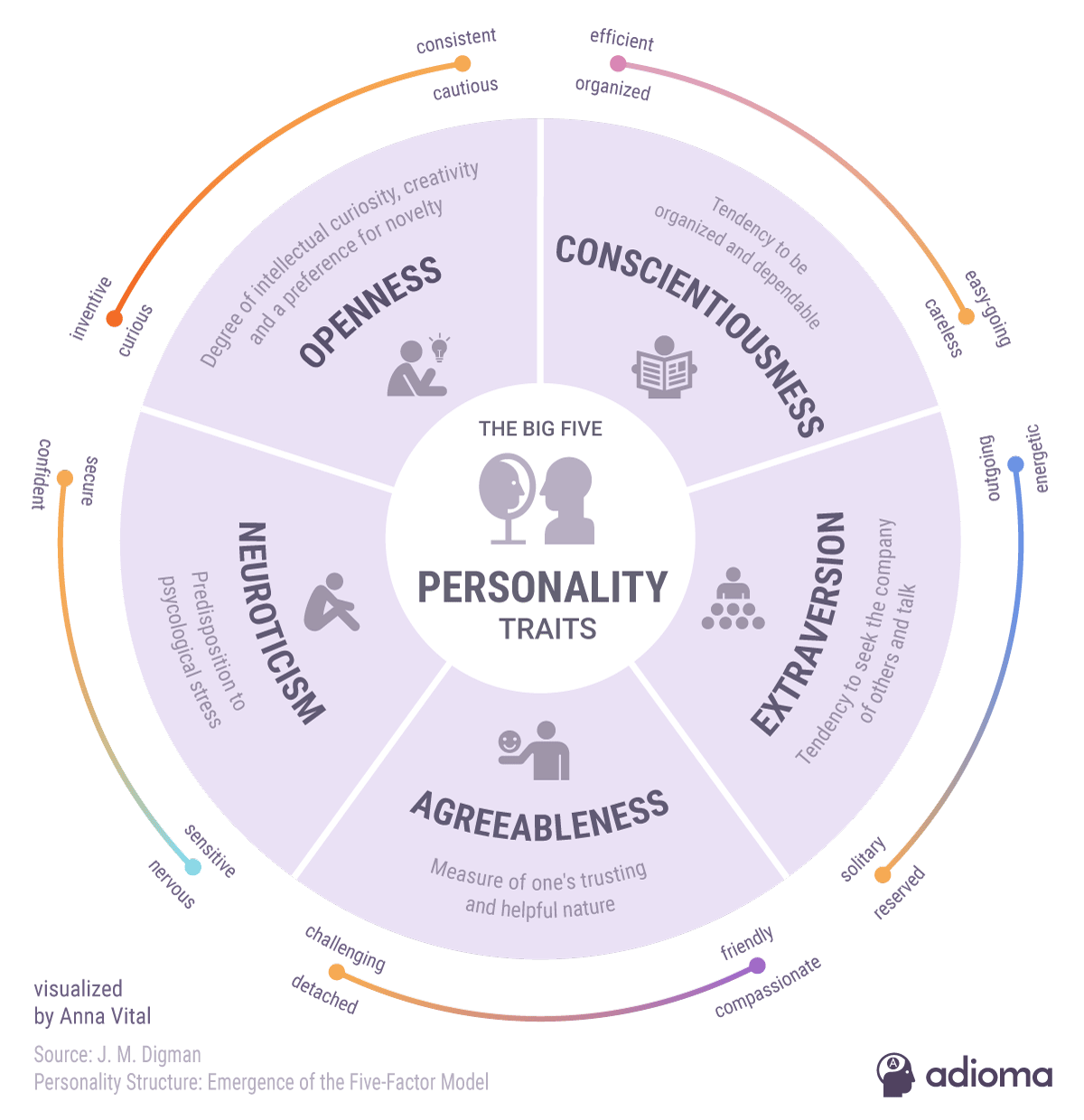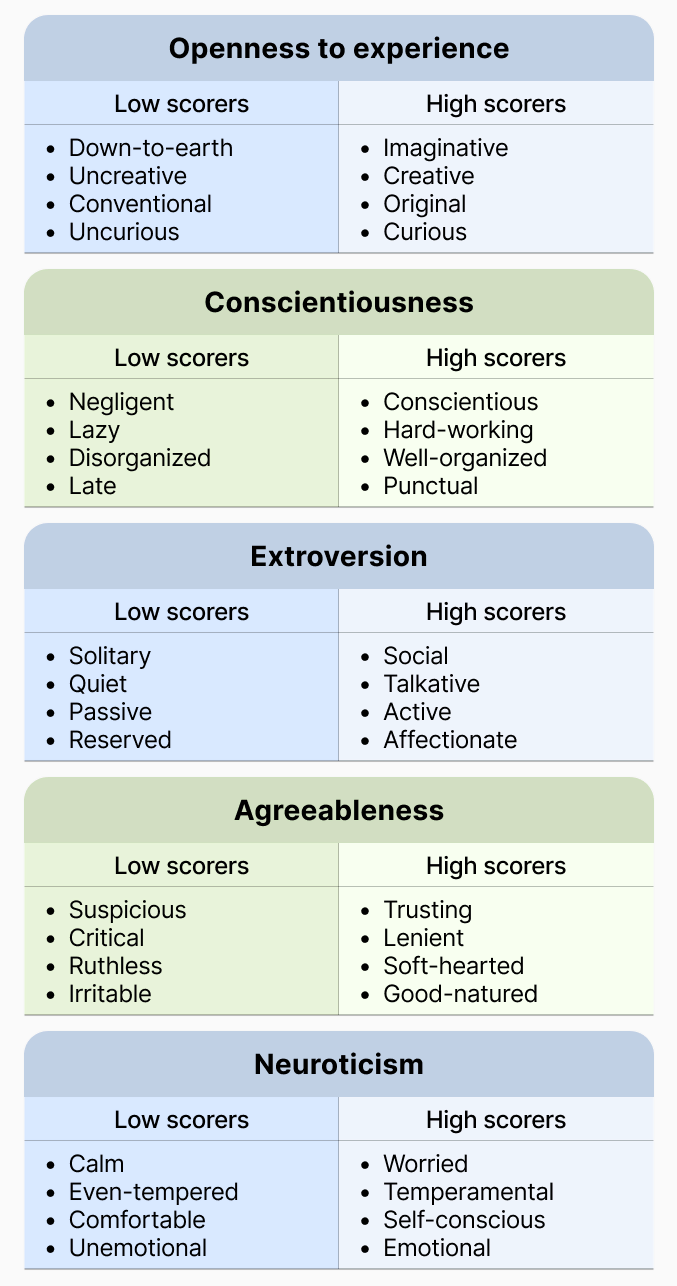
Creativity, in its essence, is not a random gift bestowed on a select few. It’s a deeply personal process shaped by the individual’s personality traits, which fundamentally determine how they see and interact with the world. Among the most valuable tools for understanding this is the Big Five Personality Traits—a framework that has been extensively researched and provides profound insight into our motivations, behaviors, and tendencies. Creativity does not emerge in a vacuum; it is profoundly influenced by where you fall on the scales of Openness, Conscientiousness, Extraversion, Agreeableness, and Neuroticism. If you can identify and leverage your unique blend of these traits, you can unlock levels of creative achievement that align with your very nature.

Take Openness to Experience, for example. This trait is the hallmark of creativity. High openness means you are deeply curious, imaginative, and drawn to novelty. If you score high here, your creativity thrives in environments where exploration and unconventional thinking are encouraged. You are the artist, the visionary, the inventor—someone who revels in ambiguity and uses it as fuel for creation. But high openness also comes with a cost: you may struggle with focus or execution. That’s where an understanding of Conscientiousness comes into play. If you’re lower in conscientiousness, you may find it challenging to channel your boundless ideas into structured projects. For you, creating external systems of organization—deadlines, accountability partners, or structured routines—can help balance your expansive creativity with practical outcomes.
Creativity does not emerge in a vacuum; it is profoundly influenced by where you fall on the scales of Openness, Conscientiousness, Extraversion, Agreeableness, and Neuroticism.
For those who are highly Extraverted, creativity may flourish in social settings—brainstorming with a team, bouncing ideas off others, and drawing energy from group dynamics. Extroverts often thrive in performance-driven creative fields or collaborative endeavors, where their enthusiasm and charisma can translate into innovation. In contrast, highly Introverted individuals may require solitude and introspection to achieve their best creative work. They are likely to excel in environments where they can work quietly and deeply, away from distractions. Understanding this difference is critical—forcing an introvert into extroverted methods of creativity, or vice versa, is a recipe for frustration and burnout.
Stop forcing yourself into molds that don’t fit. Instead, embrace your unique personality and let it guide your creative work.
Neuroticism—often unfairly maligned as a purely negative trait—can also be a surprising ally in creative work. High neuroticism often correlates with heightened emotional sensitivity and a deep awareness of life’s uncertainties. While this can lead to stress or anxiety, it can also produce art, writing, or problem-solving that resonates with profound emotional depth and insight. Many great works of literature and music come from individuals who use their emotional intensity as a wellspring of creative expression. However, if neuroticism begins to overwhelm, practices such as mindfulness or structured reflection can help channel that emotional energy productively.
Creativity is not about imitating others but about understanding yourself deeply enough to bring forth your best contributions.”
Finally, Agreeableness—or its absence—plays a key role in how creativity manifests. Highly agreeable people often excel in creative fields where collaboration, empathy, and harmony are essential, such as caregiving professions or human-centered design. Those lower in agreeableness, however, may excel in competitive or unconventional creative pursuits, where breaking rules or challenging norms is part of the process. Both paths are valid, but each demands a different approach to creativity.

By recognizing where you fall on these five traits, you can craft a creative process that is uniquely yours—one that plays to your strengths and manages your challenges. Creativity, as Jordan Peterson often emphasizes, is not about imitating others but about understanding yourself deeply enough to bring forth your best contributions. Stop forcing yourself into molds that don’t fit. Instead, embrace your unique personality and let it guide your creative work. The Big Five isn’t just a tool for self-awareness—it’s a roadmap to unlocking your potential and achieving creativity on your terms.







